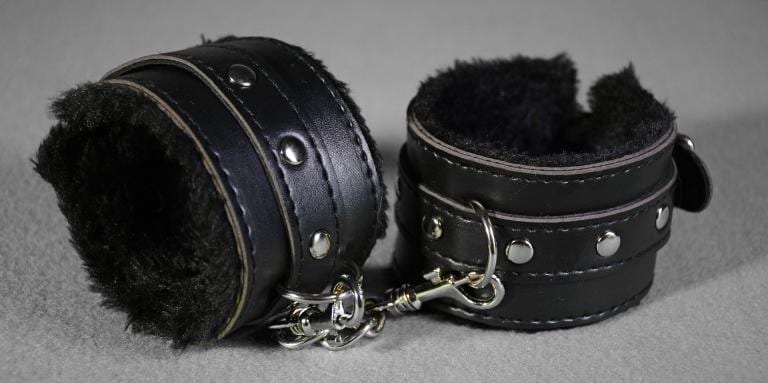I was preparing to give a short talk on gender dysphoria, and was trying to figure out how to say something meaningful in nine minutes. My audience would be composed almost entirely of Christians who are cisgender (that is, they don’t experience a conflict between their gender identity and their sexual biology.) I needed to somehow quickly address whatever the biggest misunderstandings were. So I asked my husband, “What’s the hardest thing for you to understand about gender dysphoria?”
“You seem to have ‘awareness of gender’ as part of your sensorium,” he said “I don’t. I can’t tell you how male or female I feel at any given moment because I have always felt the same and have no basis for comparison.”
I stared at him, trying to work out what on earth he was talking about. I mean, how could you not have a sense of gender? What would that even mean?
And that was the point where I realized that his experience, and the experience (so far as I can tell) of the vast majority of people is sufficiently different from the experience of people with gender dysphoria that it’s hard even to find a way of talking about it.
He’s not the only person who I’ve ever heard this from. I see it all the time in articles and com-boxes from Christians who are arguing that gender isn’t even a real thing, that trans people are mentally ill, that it’s all just made up and imaginary. But it was the first time that I heard it from someone who had made a sincere attempt to understand gender dysphoria. Someone who was trans-inclusive. Someone who had read, edited and approved pretty much every thing I had ever said about gender.
It was the first time I realized that the disconnect is not ideological, but experiential.
For people who are cisgender, the experience of gender identity is either non-existent or it’s tied to the performance of gender roles. So a woman might feel “more feminine” when she’s wearing a nice dress and make-up, but that doesn’t mean that she feels “masculine” when she’s bumming around the house in a flannel shirt or fixing the plumbing. She’s just less consciously aware of her femininity than when she’s deliberately drawing attention to it.
Now, if your feelings of femininity or masculinity are tied to specific types of gender-stereotypical behaviour obviously you’re going to assume that what a person means when they say they feel that there is a disconnect between their gender identity and their sexual biology is that the person is uncomfortable with traditional gender roles. Maybe they’re a guy who wants to wear pretty dresses and make-up. Or a tom-boy who wants to clomp around in combat boots and bizz things with power tools.
But those things are not being masculine or feminine. Those are gender roles. Stereotypes. Social constructs. Feminism, particularly, has gone to great lengths to deny that there is any fundamental connection between womanhood and performative femininity. We’ve fought tooth and nail against the idea that a woman who likes hard logic or mixed martial arts, who despises make-up and rom-coms, is somehow less of a woman than one who enjoys tea-parties, bra-shopping and Precious Moments.
Trans women, then, are seen as a threat to feminism because they are perceived as cementing a relationship between femininity and the performance of gender roles. A guy in a skirt is not a woman any more than a woman in pants is a man. What makes a woman a woman is her sex, regardless of how she chooses to behave.
What this line of argumentation misses is that gender is actually more than just the performance of gender specific activities.
It misses it for the most understandable reason: namely, that gender isn’t something that you’re really aware of unless your gender identity is somehow misaligned. It’s kind of like if a water-breathing alien life-form showed up and asked you “What is it like to breathe air?” You’ve never breathed anything else. You can’t compare it to breathing water because you have no experience of being able to breathe water — only, perhaps, an experience of being underwater and not able to breathe at all. Breathing air doesn’t really feel like anything. It just feels normal.
And yet it has an impact on everything that we do. If you increase or decrease the oxygen concentration in your environment, it changes how you feel, how you think, how you operate. An intelligent water-breathing life-form would almost certainly have significantly different experiences, different neurology, and different culture as a result of breathing water. It’s not superficial. Air-breathing has a substantial impact on our identities, our selves, even though we never really think about it. And we can’t imagine being water-breathing except through rather cartoonish fantasies involving folks who somehow forge tridents without the aid of fire.
But if you could sit down with a sophisticated and intelligent salamander, or a frog who happened to be a phenomenologist, they might very well be able to talk about the existential difference between breathing water and breathing air. Whether they could do so in a way that would be accessible to either mammals or fish is, of course, another question.
When it comes to gender, though, we’re looking at something where the difference is more familiar. There are humans who are male, and also humans who are female. And increasingly, as we come to understand how sexuality works on a biological level, we’re aware that there are actually quite a lot of humans who are intersex to one degree or another.
And we know, from the experience of intersex folks who were assigned the wrong gender at birth, that gender identity is not as simple as outward appearance, social conditioning, and behaviour. If you take a boy with ambiguous genitalia, surgically correct him to look and function like a girl, give him female hormones, and a female name, raise him as a daughter, and never tell him what happened…more than likely he will have a crisis at some point because he feels like a boy.
We also know that there is no single biological factor that causes a person’s gender identity to be masculine or feminine. Women with complete androgen insensitivity don’t generally have uteruses, do generally have undescended testes, and have XY chromosomes — but they are phenotypically female and almost invariably have feminine gender identities. Even if they prefer typically “masculine” pursuits.
What we call gender identity, then, is something that is different from gender role, and it’s distinct from both genital sex and chromosomal sex. It’s its own thing. It’s a thing that most people never notice, and never distinguish from their socialization and sex because it is continuous with those things. There’s no contrast, so it’s like trying to pick out the proverbial black cat in the proverbial dark room.
But for someone with GD, it stands out precisely because there is a contrast. As one trans friend put it, “Even if I am playing with a sword, I feel like Joan of Arc.” In other words, when she is doing a stereotypically masculine thing she still feels feminine. My experience is similar. Sometimes I will throw my bow-saw over my shoulder and head out to chop down trees feeling like I’m a fierce Amazon doing battle against tree-flesh. But, as I’ve quipped before, sometimes I feel “masculine” when I’m giving birth.
It’s not simply a matter of how you dress, or how you act, what roles you choose to play, or what body you inhabit. I’m not entirely sure what gender identity is, or where it comes from, or why in some people it is at odds with their obvious biological features, or why in my case it seems to fluctuate with my hormones, sleep levels, and some other set of mysterious factors. All I know is that it is a distinct and real thing, not just something we’re making up.
Image credit: pixabay
Stay in touch! Like Catholic Authenticity on Facebook:













